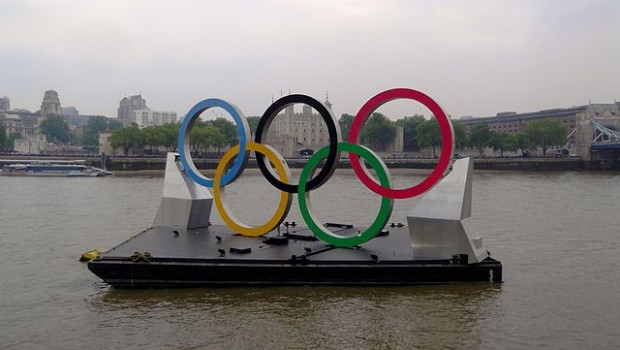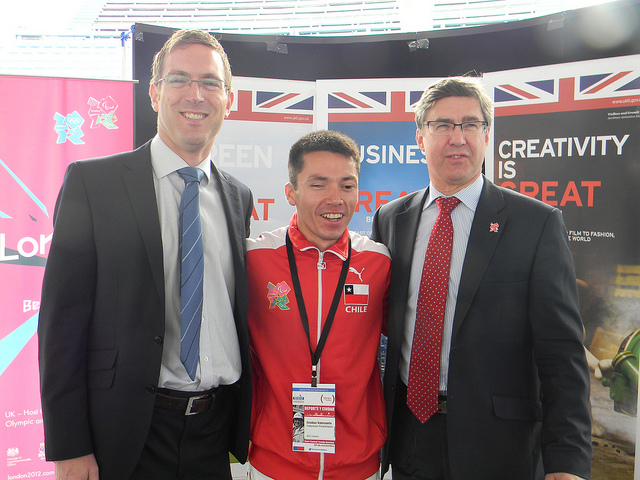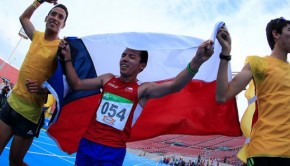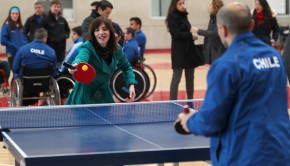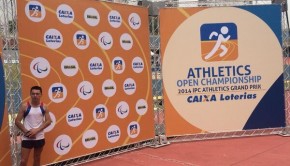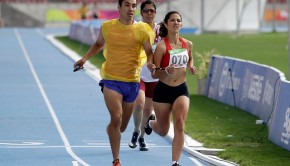London’s Olympic Legacy
Steven Stringer, London 2012 Deputy Director of Legacy visited Chile in November 2012 for an event organised by Chile Ministry of Housing and Urbanism and the British Embassy.
When the games were announced, what was your feeling?
When we won the games, I was lucky enough to be in Trafalgar Square celebrating when we won. I had two key thoughts. One, I was very excited that the Games would come to London with the opportunities that would come with that. I was also concerned about just how much effort it was going to take for us to do this. I’d already been working in East London, so knew how challenging it would be to bring about the step change we wanted. It was both excitement and a bit of trepidation. That’s probably quite good as this is a major thing that we want to get it right. We’d seen some examples from Athens and other cities, and we were determined to get it right this time.
This idea of creating the legacy is already something that is already happening – with the park being closed for redevelopment, do you have a feeling that they are not able to use the park?
I think there are two answers to that question. One is that the people of East London waited quite long enough. We’ve been investing in the area quite significantly, we have brought about real change in places like Stratford, but at an individual level, they’ve been waiting a long time for improvements in their quality of life and there is an impatience, quite naturally, to get on with it. To make sure that we do genuinely bring about a legacy.
That’s not just about building a building, it’s about building real economic choices for them, giving them skills and education. That’s an essentially core part of what we are trying to do. I think they’re willing to wait though for the park itself to open. They know what it takes now, how we have to transform the park. They know if they want this place for their families and children, it will take us time to open it.
Yes, we would have liked to have been able to open the day after the Games, but it’s just not possible. It’s not safe to allow people into a building site.
Do you think Brazil will put a similar emphasis on sustainability as the London Games?
I would hope that Brazil will do an environmentally sustainable games. One of the things I said in the presentation is that in international events, environmental sustainability should be a given, it shouldn’t be an add-on. I would hope Brazil see it as a given and the IOC hold them to that as well.
More importantly, in the UK, we have learnt a lot about how we can do better in terms of the environment. It’s not just about energy efficiency, it’s about food, the way people use the parks and waterways, air quality, lighting, energy use. We now have learned lots of lessons we can use in other regeneration projects.
Particularly in the building of the Olympic Village to the highest sustainable levels ever done in the UK, again we’ve learned many lessons about how we can create 2-3 thousands homes at the highest possible level.
What’s your biggest piece of advice for Brazil, considering they also have the World Cup in 2014?
We’ve had an outreach program, they came to the UK to watch and observe. The most important thing they can do is to find enough energy to be able to do one after the other. Both are fantastic events. They’ll do them brilliantly I’m sure, in their own style. It’s about thinking long and hard about how you sustain that momentum and how you create the energy to keep going through both events.
One of the things that was interesting was that having finished the Olympic Games, we knew we had to do the Paralympics just as well. There were 2 or 3 days during the gap between each event where we knew we had to get some new energy and get some rest. All those people going to the Paralympics deserved the same as everybody else.
The Paralympics were a key part of the vision for London. Is the key to success to make it another Olympics?
Yes. I think it’s really important that we see the Paralympics, not as a second set of sports, but an equal set of sports, made up of elite athletes, I suppose it goes back to confidence. We knew, because we have a heritage of Paralympic sports in the UK, that we were passionate about it, that we could do it well. What astonished us was the sheer excitement and commitment of the people. The way they engaged with the Paralympic Games was way beyond anything we had ever though. We made many more tickets available, the television put on extra hours. The engagement of people was just astonishing.
I hope the Paralympic movement has the confidence to stand up and say “we’re just as important as the Olympic Games” and not to see it as a one-off because it happened in the home of the Paralympics, but just a norm from here on in.
Chile is hosting some major events in the next few years, including the South American Games and Copa America. There will be a range of new facilities and upgrades. What would you hope to see if you were in your current position in Chile?
I’d like to see two things. One is about the accessibility and openness of facilities. Something we really tried to do in London was to build facilities that were open for both able and disabled athletes, but then that once the event was over, the general public have the opportunity to use those facilities. For them to be able to swim down the Olympic pool.
The second thing is to use the Games as a way of changing people’s lifestyles. That’s not just about doing sport, although sport is really important. It’s about how people travel round a city, how people use public transport, how people cycle. It’s really exciting to see a city that’s beginning to engage with cycling as a core part. In London, the Mayor of London’s cycling scheme is a key part of the transport plan.
It’s all part of modern-day sport, changing attitudes to everyday lifestyle. Parents walking to school with their children. Simple steps that can give a healthier lifestyle.
The Ambassador is happy West Ham will move into the stadium. What’s the responsibility of a club to ensure the sustainability of such a venue?
I think the important thing to recognise is the way any club will move in on a tenancy basis. Ultimately the stadium will be owned by the legacy company, and it’s their responsibility to follow through on all of the sustainability issues.
Hopefully the way that we will be able to use and design the stadium and transform it into a football pitch will have sustainability at the centre of what it’s trying to achieve, but ultimately it is a football stadium, and there are things we will have to do to match up with health and safety and other regulations.
A reason I asked is that Universidad de Chile, one of Chile’s biggest clubs, is making plans to build a new stadium. It is likely to be in a poorer area. Do you have any advice for the club, considering they will be owners of the stadium?
I’m not sure I have any real advice, except that in the UK, how we now try and use stadiums is to see them as an integral part of other developments. In the past, if you look at some cities like Liverpool and Manchester, you get a stadium in the middle of an urban area, in the middle of houses, that doesn’t have the transport links or infrastructure around it. The way we try and build stadiums now, like the one at Arsenal, the one Tottenham are trying to develop, sees the football and the transport as integral to the local community.
I would hope that here, that the club would look in the same way, and the local authorities would be looking at the impact on the surrounding area, so that it fits together. So you can get in and out of the stadium effectively and that it is used for the community when it’s not being used full time for football.
What is your team?
I’m an Arsenal supporter. I have been for a long time. I’m not a season ticket holder, but I do go to the stadium fairly regularly. The best in London of course.
How have you enjoyed your time in Chile?
I have absolutely loved my time in Chile. I’m doing a whole series of firsts by coming here. First time in Chile, South America or even the Southern Hemisphere. I’m so pleased Chile was the first place I came to. I’ve thoroughly enjoyed my time here. I’ve learnt a lot, had really good conversations about common themes we have in big cities about social and economic policies. The food is wonderful, the people are great, I love it.
Where do you go from here?
First of all to help the future legacy of the Games. I set up the legacy company to own and manage the park, which they have now taken over, it’s for them to take that forward with the mayor. Part of my additional responsibilities are to improve the private rented sector in England. It has been really interesting to talk with my opposite numbers in the housing department here and learn from what they have done.
Now the Games have happened, we’re moving on, we have bigger and better challenges.
Sport/Life will be publishing a series of interviews in full that have been done over the past years for stories on I Love Chile and other publications.

